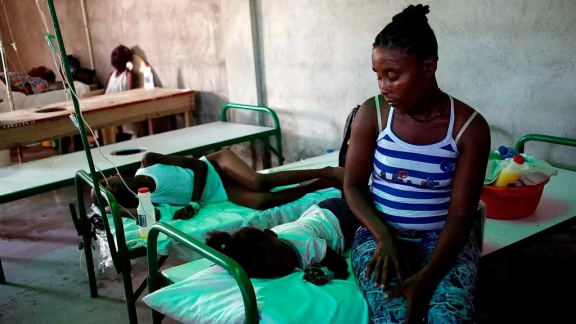Luanda: Angola’s Ministry of Health (MINSA) has announced a cholera outbreak, reporting 119 cases, including 12 fatalities. Among these, 14 cases have been confirmed through laboratory tests, while 12 samples are still under analysis.
The outbreak was officially declared following the confirmation of the first case on January 7, 2025. In response, MINSA has activated its national cholera response plan, deploying medical resources and supplies. Key initiatives include improved epidemiological and laboratory surveillance, community awareness efforts, and water and sanitation measures, such as distributing calcium hypochlorite and ensuring access to clean water.
The ministry highlighted difficulties in managing the outbreak, particularly due to poor sanitation in affected areas and the absence of potable water systems in high-risk regions.
In the last 24 hours, 24 new cholera cases were reported, with 20 of them in Cacuaco Municipality, the outbreak’s epicenter. Cacuaco, located in Angola’s capital province of Luanda, has a population exceeding 1.2 million.
Of the reported cases, 53% are female and 47% male, with 11 of the 12 deaths occurring in Cacuaco.
A cholera case is defined as a patient experiencing severe dehydration or death from acute watery diarrhea, with or without vomiting, in individuals over two years old in cholera-affected areas. A confirmed case is one where the cholera vibrio has been isolated in stool samples.
According to a timeline in the bulletin, symptoms were first noted in a patient on December 31, 2024, as reported by Xinhua news agency.
The World Health Organization states that cholera is an acute diarrheal infection caused by consuming food or water contaminated with the bacterium Vibrio cholerae. It poses a significant global public health risk and reflects issues of inequity and lack of social and economic development. Access to safe water, basic sanitation, and hygiene is crucial in preventing cholera and other waterborne diseases.
While many cholera cases are mild or moderate and can be treated with oral rehydration solutions (ORS), the disease can escalate quickly, making prompt treatment essential for survival. Severe cases require intravenous fluids, ORS, and antibiotics.
Cholera has been recognized for centuries, with the first recorded pandemic in the 19th century. Since then, six pandemics have resulted in millions of deaths worldwide. The ongoing seventh pandemic began in South Asia in 1961 and continues to affect populations globally.
